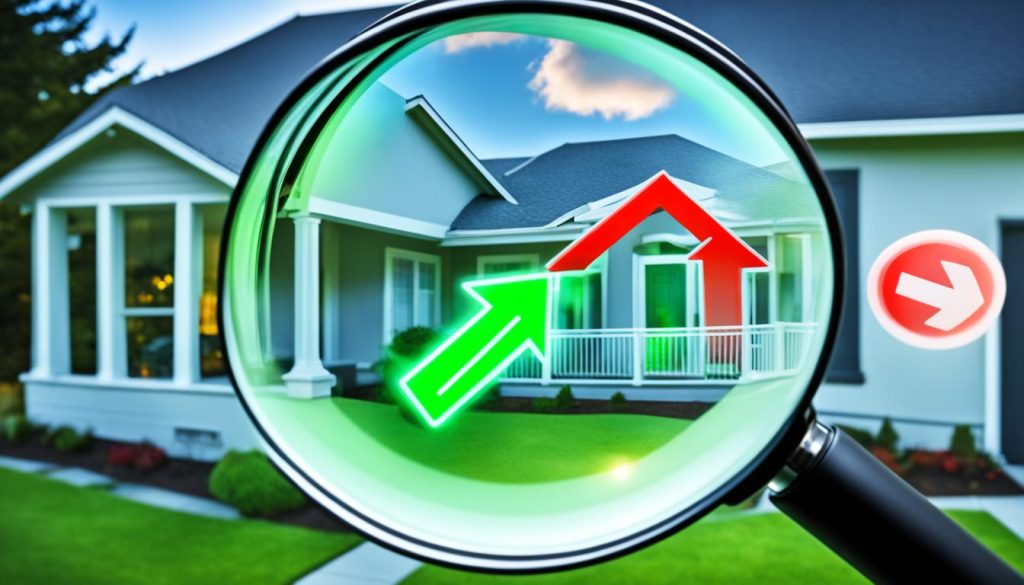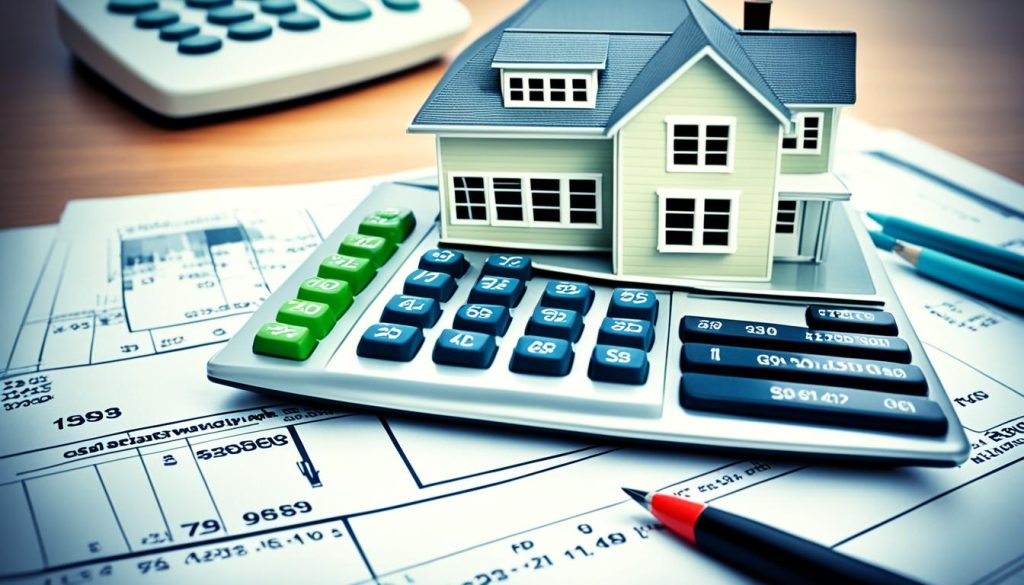In this comprehensive guide, we will explore the various methods you can use to accurately value your house in the UK market. Whether you’re looking to sell your property or simply want to understand its current market worth, we’ve got you covered.
Valuing your house accurately is essential for any homeowner. Whether you’re considering selling or just curious about your property’s worth, understanding its value is key. But how can you determine the most accurate house valuation? In this guide, we’ll walk you through different approaches to ensure you get an accurate estimate of your house’s worth.
How Can I Value My House Accurately?
Before diving into the specific methods for valuing a house, it’s important to understand the different approaches that professionals use. By familiarising yourself with these methods, you’ll gain a clearer picture of how to assess your property’s value accurately.
When it comes to house valuation, there are various factors to consider. Property valuation involves analyzing different aspects of a home to determine its worth in the current market. The methods used to value a house can vary depending on the purpose of the valuation, whether it’s for selling, insurance, or simply gaining knowledge about your asset.
One common method used by professionals is the Comparative Market Analysis (CMA), which involves comparing similar properties that have recently sold in the same area. By evaluating how these comparable sales relate to your home, appraisers can estimate its value.
Another approach is the Cost Approach, which considers the cost of replacing the property. This method takes into account the land value, construction cost, and depreciation to determine the property’s value. This method is particularly useful for newer homes.
The Income Approach is often used to value rental properties or investment properties. It involves estimating the potential income the property could generate and applying a capitalization rate to determine its value.
Understanding Different House Valuation Methods:
1. Comparative Market Analysis (CMA): This method compares recently sold properties with your home to estimate its value accurately.
2. Cost Approach: This method considers the cost of replacing the property, including land value, construction cost, and depreciation.
3. Income Approach: This method estimates the potential income the property could generate and applies a capitalization rate to determine its value.
It’s essential to understand that no single method is foolproof, and the accuracy of the valuation depends on various factors such as market conditions, location, and the expertise of the appraiser.

Hiring a Professional Appraiser
When it comes to determining the value of your house, hiring a professional appraiser is one of the most reliable methods. These experts possess in-depth knowledge of the local property market and utilize their expertise to provide an unbiased and accurate appraisal. By analyzing various factors such as location, size, condition, and recent sales data, appraisers can offer valuable insights into the estimated worth of your property.
If you’re considering hiring a professional appraiser for your house valuation, here are some steps to guide you through the process:
- Research reputable appraisers: Begin by researching and identifying reputable appraisers in your area. Look for individuals or companies that specialize in residential property appraisals and have a track record of delivering accurate valuations.
- Check qualifications and certifications: Ensure that the appraiser you choose is qualified and certified. Look for certifications such as the Royal Institution of Chartered Surveyors (RICS) or the National Association of Independent Property Surveyors (NAIPS) to ensure that you’re working with a professional who adheres to industry standards.
- Request a quote: Contact the appraisers on your list and request a quote for their services. Discuss the details of your property, including its size, location, and any unique features that may affect its value.
- Review their experience and credentials: Take the time to review the appraisers’ experience and credentials. Look for testimonials or reviews from past clients to gauge their reputation and level of customer satisfaction.
- Ask about the appraisal process: Inquire about the appraiser’s process and methodologies. Understanding how they gather data, evaluate comparable properties, and analyze market trends will give you a better understanding of their approach.
- Schedule an appointment: Once you’ve chosen an appraiser, schedule an appointment for them to visit your property. During this visit, they will inspect your house, take measurements, and gather relevant information to assess its value accurately.
- Review the appraisal report: After the appraiser has completed their assessment, they will provide you with an appraisal report. This report will include their findings, methodology, and the final estimated value of your property.
Hiring a professional appraiser ensures that you receive an objective and reliable assessment of your house’s value. Their expertise and knowledge of the local market will help you make informed decisions, whether you’re planning to sell your property or simply want to understand its current worth.
Benefits of Hiring a Professional Appraiser
There are several benefits to hiring a professional appraiser for your house valuation:
- Accurate and unbiased valuation based on real market conditions.
- Expertise in analyzing factors that affect property value.
- Knowledge of local market trends and comparable sales data.
- Professional appraisal reports that can be used for various purposes, such as mortgage applications or negotiations.
- Peace of mind knowing that you have a reliable estimate of your house’s value.
By hiring a professional appraiser, you can gain a comprehensive understanding of your property’s worth and make informed decisions based on accurate valuation.
| Benefits of Hiring a Professional Appraiser |
|---|
| Accurate and unbiased valuation based on real market conditions |
| Expertise in analyzing factors that affect property value |
| Knowledge of local market trends and comparable sales data |
| Professional appraisal reports that can be used for various purposes, such as mortgage applications or negotiations |
| Peace of mind knowing that you have a reliable estimate of your house’s value |
Utilizing Online Valuation Tools
Online valuation tools have gained immense popularity in recent years, providing homeowners with a quick and convenient way to estimate their property’s value. These tools utilize algorithms and data analysis to generate an estimated value based on various factors such as location, size, and recent sales in the area.
By using an online valuation tool, you can get an initial insight into your property’s potential worth without the need for a professional appraiser. It can be particularly helpful if you’re looking to gauge your property’s value before considering any major decisions, such as selling, refinancing, or even remodeling.
One of the key advantages of online valuation tools is their accessibility. With just a few clicks, you can input the necessary details about your property and receive an estimated value. These tools are typically user-friendly and require minimal effort and time on your part.
However, it’s important to keep in mind that online valuation tools are not a substitute for a professional appraisal. While they can provide a general idea of your property’s value, they may not take into account certain aspects that an appraiser would consider, such as unique features, recent upgrades, or specific market conditions in your area.
To help you determine the best online valuation tool for your needs, let’s explore some of the top options available:
Zoopla’s House Price Calculator
Zoopla’s House Price Calculator is a widely used online tool that provides estimated property values based on a range of factors. These factors include property type, number of bedrooms, location, and recent sold prices of similar properties in the area. Additionally, the calculator offers insights into local market trends and historical price changes, allowing you to gain a comprehensive understanding of your property’s value.
Rightmove’s Instant Valuation Tool
Rightmove’s Instant Valuation Tool is another popular choice for homeowners seeking quick estimates. It utilizes data from various sources, including Land Registry records and Zoopla, to produce an estimated value based on location, property type, and other relevant details. The tool also provides a comparison to the average property value in the area, helping you gauge where your property stands in the local market.
Property Price Advice’s Valuation Tool
Property Price Advice offers a comprehensive valuation tool that takes into account a wide range of variables. Along with property type and location, this tool considers factors such as property condition, features, and local amenities. It also provides a breakdown of the estimated value, including the land value and the property’s worth. Additionally, Property Price Advice offers a free downloadable report with more detailed information.
Remember, while online valuation tools can provide a rough estimate, they should not be the sole basis for making significant financial decisions. For a more accurate and detailed valuation, consulting with a professional appraiser is recommended.

| Online Valuation Tool | Key Features |
|---|---|
| Zoopla’s House Price Calculator |
|
| Rightmove’s Instant Valuation Tool |
|
| Property Price Advice’s Valuation Tool |
|
Considering Market Trends and Comparable Sales
The real estate market is constantly evolving, and it’s important to consider market trends and comparable sales when valuing your house. By analyzing these factors, you can gain insight into the current market conditions and determine a more accurate assessment of your property’s value.
Researching Recent Sales Data
One key aspect of evaluating your house’s value is to research recent sales data in your area. By comparing similar properties that have sold recently, you can get a sense of what buyers are willing to pay and how your house stacks up against the competition.
Start by looking for properties in your neighborhood or a similar location that have similar features and characteristics to your own. Note down the sale prices and any notable differences between the properties, such as size, condition, or amenities.
Tip: Online real estate platforms and property portals often provide access to recent sales data. Utilize these resources to gather valuable information.
Understanding Market Conditions
In addition to researching recent sales, it’s crucial to understand the current market conditions in your area. Factors such as supply and demand, interest rates, and economic indicators can all influence property values.
Stay informed about market trends by following real estate news, speaking to local real estate agents, and attending open houses or property auctions. By keeping a pulse on the market, you can better assess how external factors might impact the value of your house.
Avoiding Common Pitfalls
When considering market trends and comparable sales, it’s essential to be cautious and avoid common pitfalls. Here are a few tips to keep in mind:
- Avoid relying solely on outdated data. Market conditions can change quickly, so focus on recent sales.
- Consider both the asking price and the actual sale price of comparable properties. Sometimes, sellers may list their house at a higher price but ultimately sell for less.
- Take into account any unique features or characteristics of your house that may set it apart from comparable properties. This could positively or negatively affect its value.
- Factor in the condition of your house. If it requires significant repairs or renovations, this may impact its value compared to recently sold properties in excellent condition.
By being thorough in your research and considering multiple factors, you can obtain a more accurate house valuation based on market trends and comparable sales.

| Factors to Consider | Impact on House Valuation |
|---|---|
| Location | The proximity to amenities, schools, transport links, and desirability of the area can greatly affect the value of a house. Properties in sought-after locations may command higher prices. |
| Size and Layout | The size and layout of a house play a significant role in determining its value. Larger properties with more rooms tend to have higher valuations. |
| Condition | The overall condition of a house, including any necessary repairs or renovations, can impact its value. Well-maintained properties typically have higher valuations. |
| Amenities and Features | Special features and amenities, such as a swimming pool, a garden, or high-end appliances, can contribute to the value of a house. |
| Recent Sales | Comparing recent sales of similar properties in your area provides insight into market trends and helps determine a realistic valuation. |
Improving Your Home’s Value
If you’re looking to increase your house’s value, there are various upgrades and renovations you can consider. From simple cosmetic changes to more substantial renovations, we’ll explore how certain improvements can positively impact your property’s overall worth.
When it comes to boosting your house’s value, making smart and strategic investments can yield significant returns. Here are some key areas to focus on:
1. Enhancing Curb Appeal
A potential buyer’s first impression of your home is crucial. By investing in your home’s exterior, you can instantly improve its curb appeal. Consider repainting the front door, adding landscaping elements, or upgrading the driveway and pathways. These enhancements can create an inviting atmosphere and increase your house’s desirability.
| Enhancements | Estimated Cost | Estimated Return on Investment |
|---|---|---|
| Exterior painting | £1,000-£3,000 | 50-100% |
| Landscaping | £500-£5,000 | 80-300% |
| Driveway upgrade | £2,000-£5,000 | 60-90% |
2. Modernizing the Kitchen
The kitchen is often considered the heart of the home. Updating this space can have a significant impact on your house’s value. Focus on elements like countertops, cabinets, and appliances. Consider energy-efficient options, as they can be attractive to buyers and help reduce long-term running costs.
| Upgrades | Estimated Cost | Estimated Return on Investment |
|---|---|---|
| New countertops | £1,500-£3,500 | 50-80% |
| Refurbished cabinets | £2,000-£5,000 | 70-100% |
| Energy-efficient appliances | £3,000-£6,000 | 60-80% |
3. Adding an Extra Bathroom
A well-placed additional bathroom can significantly increase the value of your home. If you have space to spare, consider converting an underutilized area into a bathroom. This can be an attic, a walk-in closet, or even a small storage space. It’s all about maximizing your home’s potential and providing convenience to potential buyers.
| Conversion | Estimated Cost | Estimated Return on Investment |
|---|---|---|
| Attic conversion | £10,000-£20,000 | 50-75% |
| Walk-in closet conversion | £5,000-£10,000 | 60-80% |
| Storage space conversion | £2,500-£7,500 | 30-60% |
Remember, these are just a few examples of upgrades that can increase your house’s worth. The specific improvements you choose will depend on your budget, the current market trends, and the preferences of potential buyers in your area.

By strategically investing in the right areas of your home, you can enhance its value and attract potential buyers. Whether it’s creating an appealing curb appeal, modernizing the kitchen, or adding an extra bathroom, these upgrades can make a significant difference in your house’s overall worth.
Conclusion
Accurately valuing your house is essential, whether you’re considering selling or simply want to know its worth. By utilizing the expertise of professional appraisers and leveraging online valuation tools, you can gain a comprehensive understanding of your property’s value. Additionally, staying informed about market trends and considering comparable sales can further enhance your valuation assessment.
Regularly reassessing your property’s value is crucial in an ever-changing market. Market conditions can fluctuate, affecting property prices, and staying updated will ensure you have the most accurate estimate. Furthermore, making strategic improvements to your home can positively impact its worth. Consider cosmetic changes or more substantial renovations that align with current market demands and trends.
Valuing your house correctly empowers you as a homeowner, allowing you to make informed decisions regarding your property. Whether it’s for selling, refinancing, or solely to understand its value, investing time and effort in accurate valuations will provide you with clarity and confidence in your property’s financial worth.
FAQ
What is house valuation?
House valuation is the process of determining the current market worth of a property. It considers various factors such as location, size, condition, and recent sales in the area. Valuing your house accurately is important whether you’re planning to sell or simply want to understand its value.
Why should I hire a professional appraiser?
Hiring a professional appraiser is one of the most reliable ways to determine your house’s value. These experts have extensive knowledge of the local property market and use their expertise to provide an impartial and accurate valuation. They consider factors such as property condition, recent sales, and market trends.
What are online valuation tools?
Online valuation tools are websites or apps that use algorithms and data to estimate a property’s value. They analyze factors such as location, size, and recent sales in the area to provide an estimate. However, it’s important to note that these tools can vary in accuracy and should be used as a starting point rather than the sole source of valuation.
How do market trends and comparable sales affect house valuation?
Market trends and comparable sales play a significant role in house valuation. By researching recent sales data and understanding the current market conditions, you can gain insights into the demand for properties in your area. This information can help you assess your house’s value more accurately.
Can improving my home’s value affect its overall worth?
Yes, making strategic improvements to your home can positively impact its overall worth. Simple cosmetic changes and more substantial renovations can enhance your property’s appeal and desirability, potentially increasing its value. However, it’s important to carefully consider the costs and potential return on investment when planning these improvements.






